Malaria, other diseases kill hundreds in flood-hit areas of Pakistan
Authorities in Pakistan say the death toll from malaria and other diseases in the flood-ravaged regions has reached 324 over the past few weeks.
The Sindh provincial government said on Thursday makeshift health facilities in flooded areas had treated more than 78,000 patients in 24 hours. It confirmed 665 new malaria cases among internally displaced families over the same period. Over 9,000 other suspected cases have also been detected.
The provincial authority said a quarter of the more than 19,000 patients screened in the past 24 hours across the province were positive, which amounts to a total of 4,876.
The United Nations Pakistan said malaria, typhoid and diarrhea cases were spreading quickly. It said 44,000 cases of malaria were reported this week in the southern province.
Meanwhile, the director general of health services for the southwestern province of Balochistan, Noor Ahmed Qazi, said health facilities faced shortages of medicine. “We're receiving malaria patients in large numbers on a daily basis in medical camps and hospitals,” he said. “We need more medicines and test kits in flood hit areas.”
Officials are warning they now risk losing control of the spread of infections in a dire situation that UNICEF has labeled “beyond bleak.” The World Health Organization (WHO) has said the surge in diseases has the potential for a “second disaster.”
According to the disaster management, deaths from diseases are not counted among the 1,569 people who died in the flash floods, including 555 children and 320 women.
Aid workers have said more immediate help is needed for displaced families exposed to swarms of mosquitoes and other hazards.
Despite the efforts of relief organizations, many flood victims are in dire need of food, shelter, and medical assistance.
With Pakistan's already weak health system and lack of support, displaced families have complained of being forced to drink and cook with unsafe water.
"We know it can sicken us, but what to do, we have to drink it to stay alive," flood victim Ghulam Rasool, whose home was washed away in southern Pakistan, told local Geo News TV.
Stagnant floodwaters, spread over hundreds of kilometers, may take two to six months to recede. Already they have led to widespread cases of skin and eye infections and dengue fever.
An intense monsoon dumped about three times as much rain as Pakistan's three-decade average. Combined with glacial melt, this caused unprecedented flooding. The deluge has affected nearly 33 million people in the South Asian nation of 220 million. It has swept away homes, crops, bridges, roads and livestock in damages estimated at $30 billion.
Iran FM says to issue protest to Kuwait over US aircraft downing
IRIB chief says Tehran compound hit for third time in months; broadcasts continue
US-allied fuel tanker attacked by Iran still burning in Strait of Hormuz: IRGC
Attacks on hospitals, schools ‘strike at life itself’: Pezeshkian
Iran’s attacks on US bases ‘legitimate’ response to source of aggression: Araghchi
IRGC targets US intelligence centers, military depots in 11th wave of attacks
US-Israeli attacks damage 5 hospitals, medical centers in Iran: MP
Unlike US, Iran prepared for a long war: Security chief


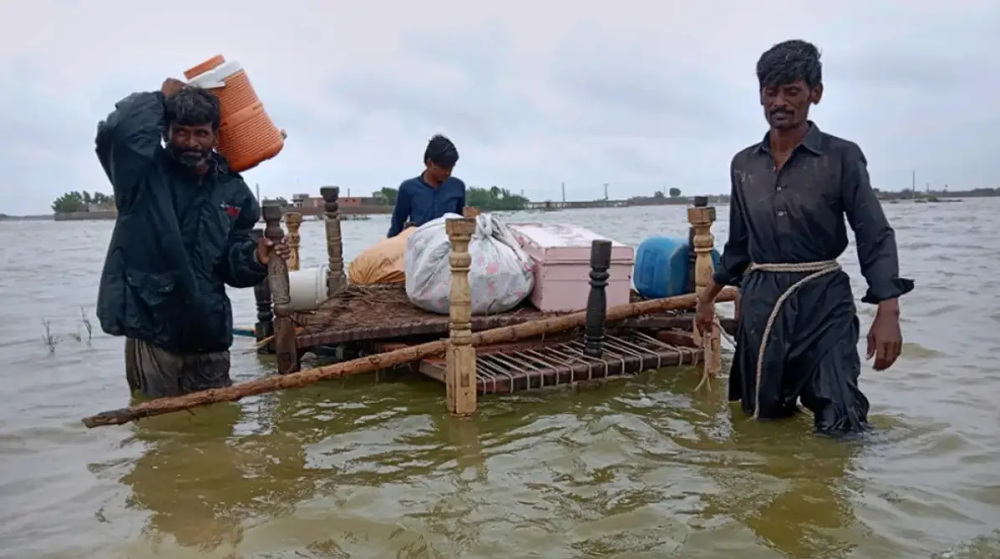
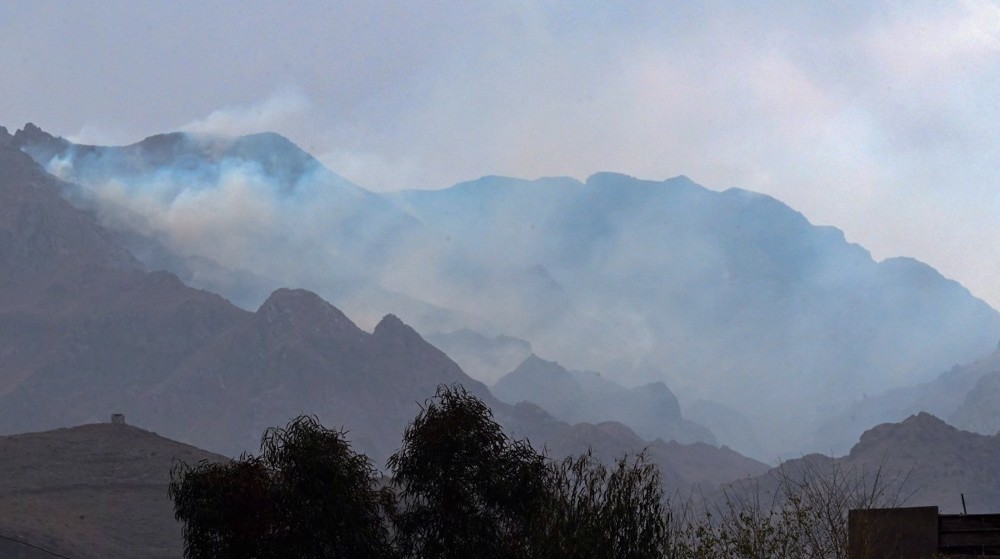
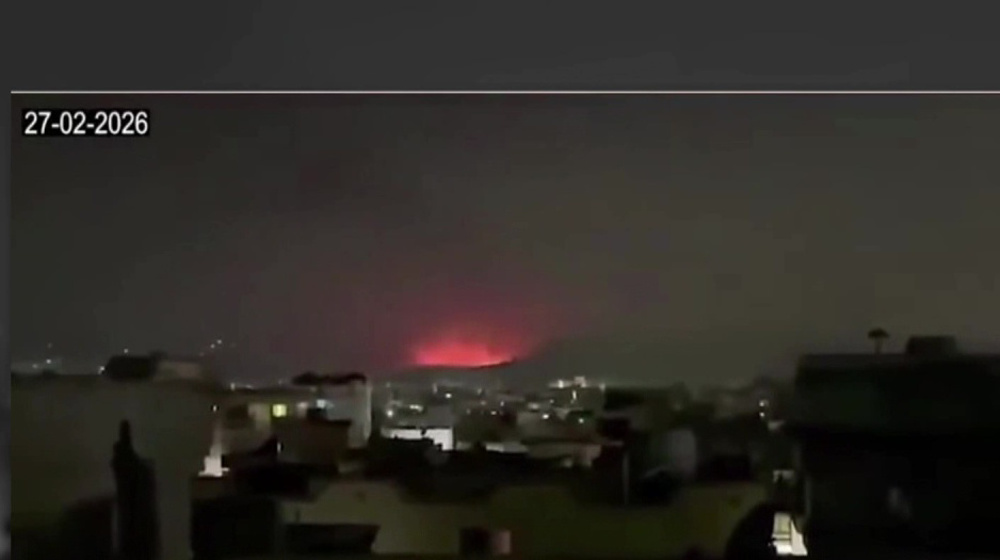
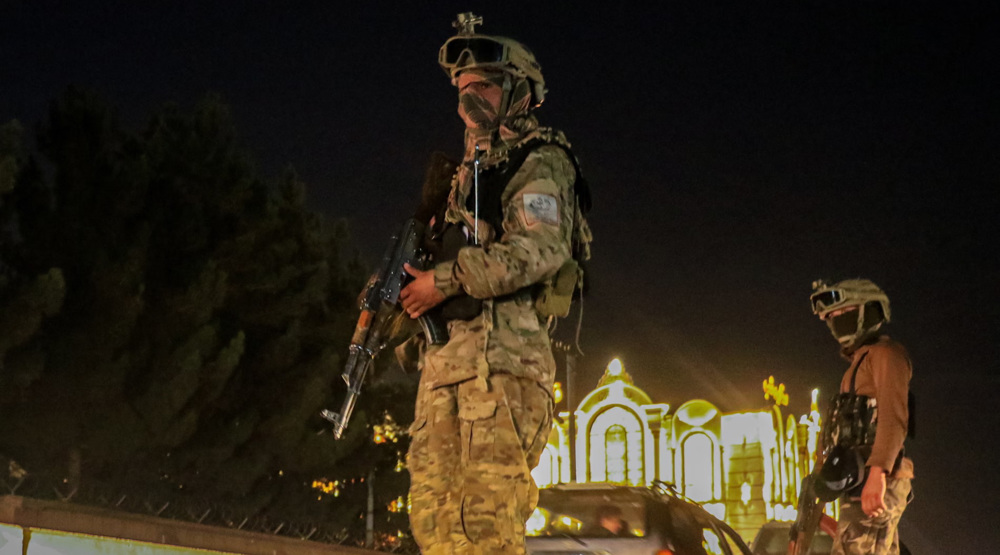



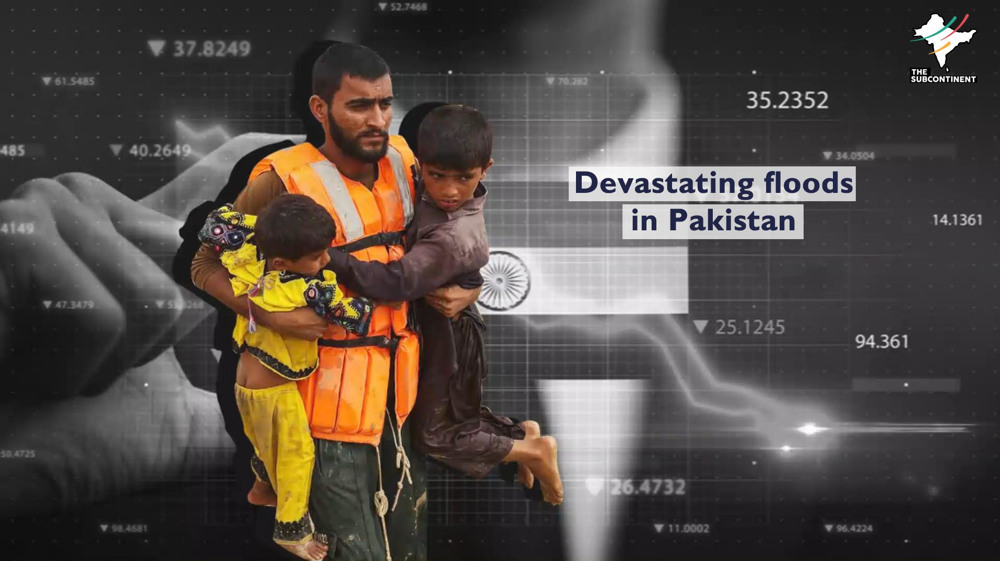
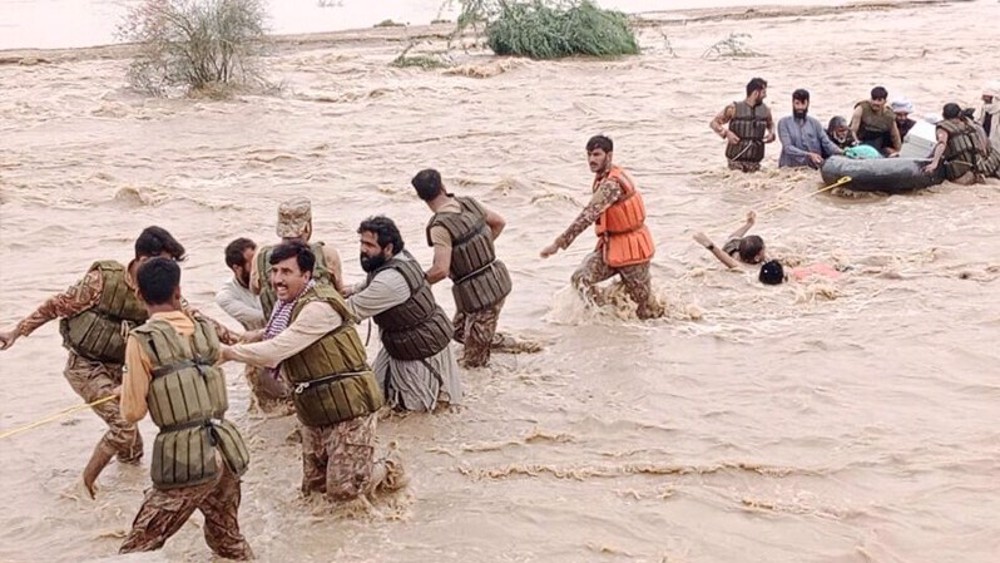
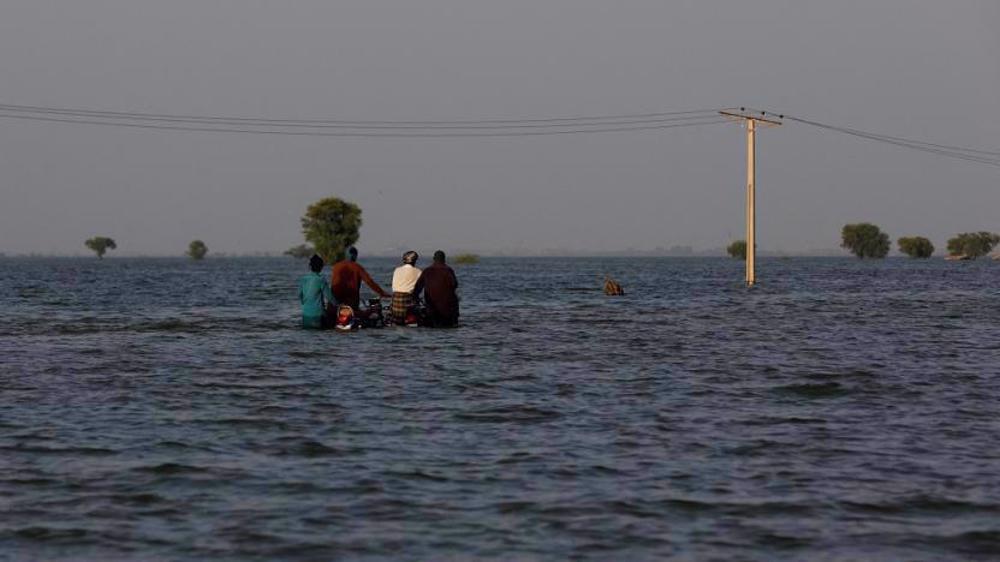
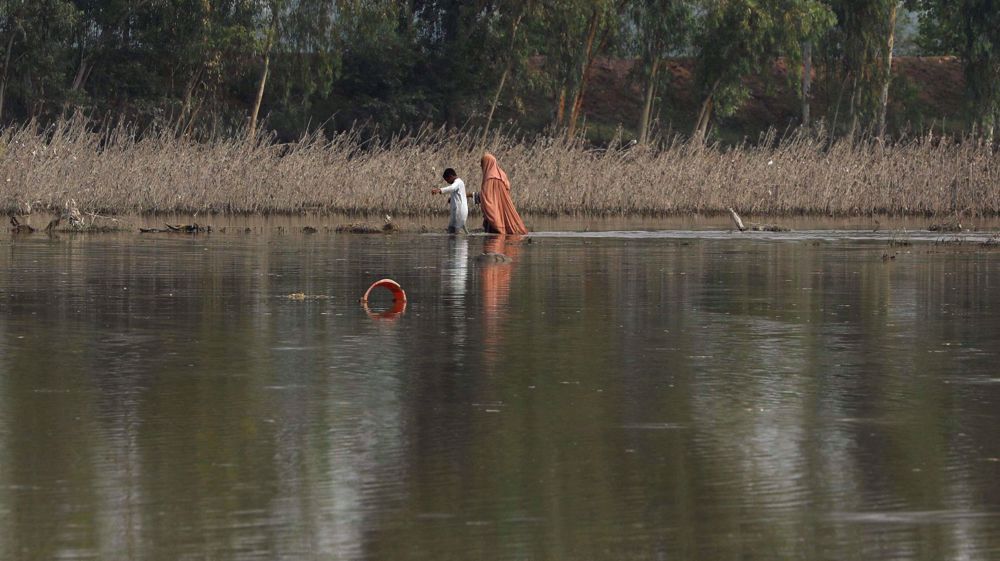

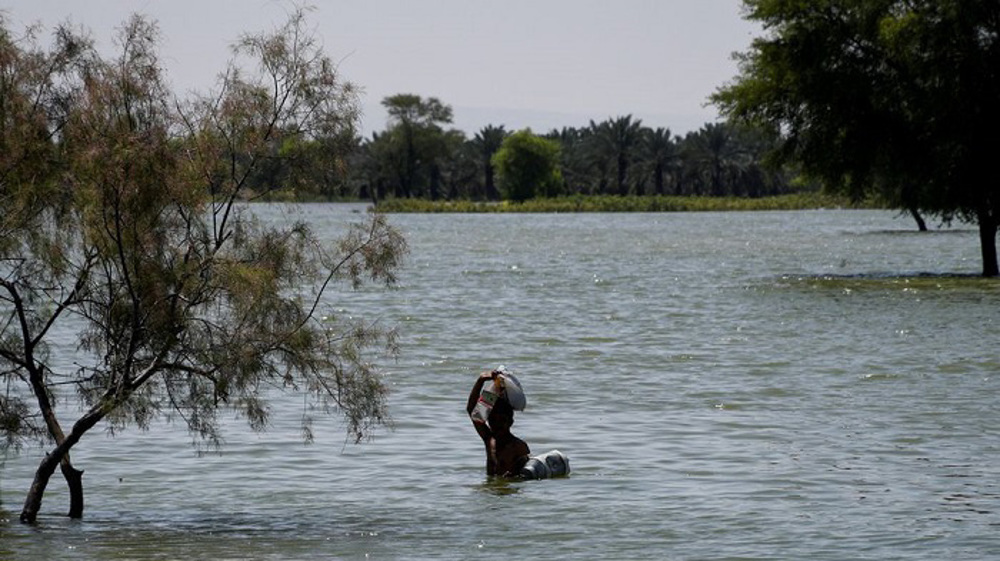


 This makes it easy to access the Press TV website
This makes it easy to access the Press TV website